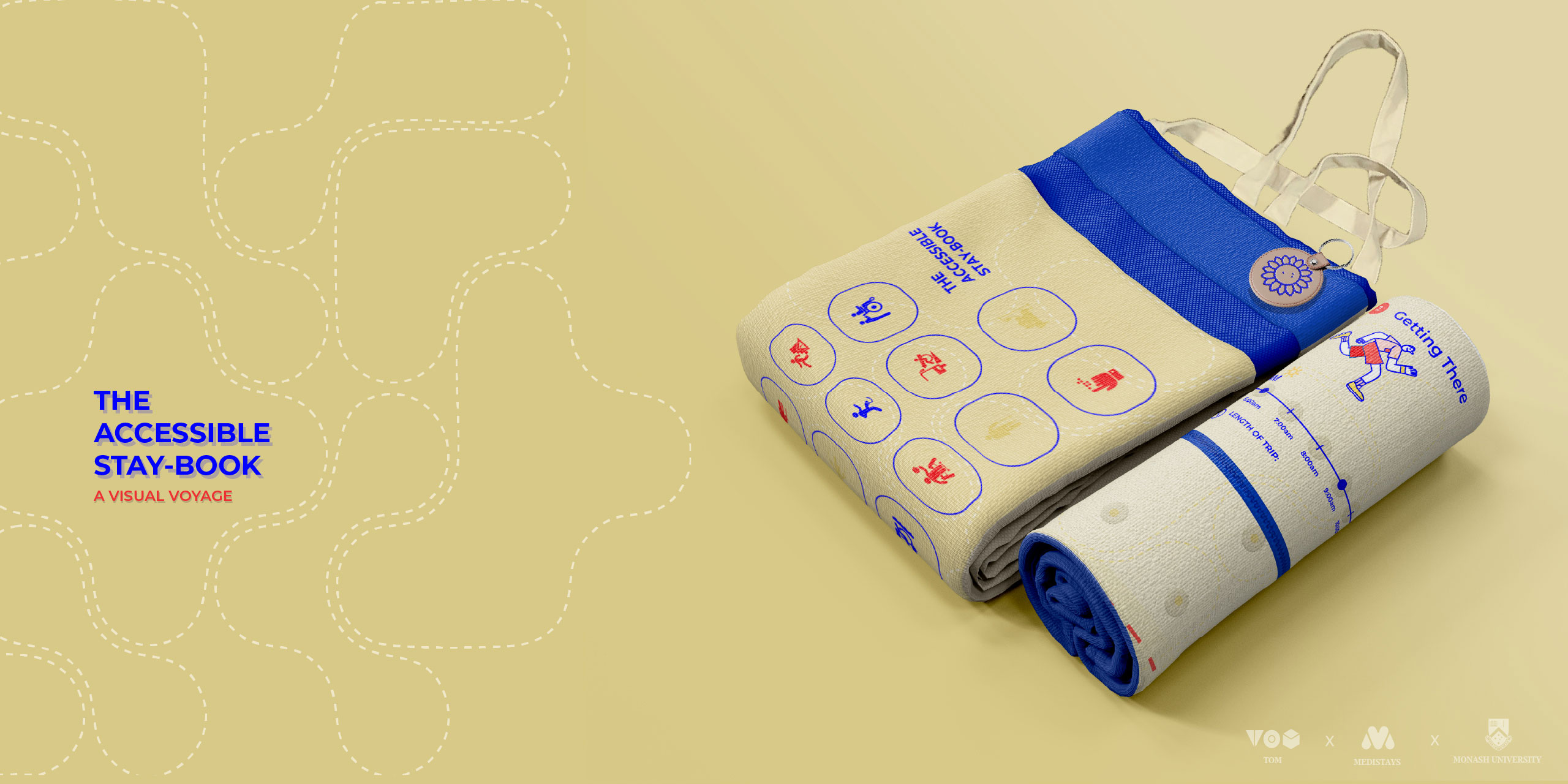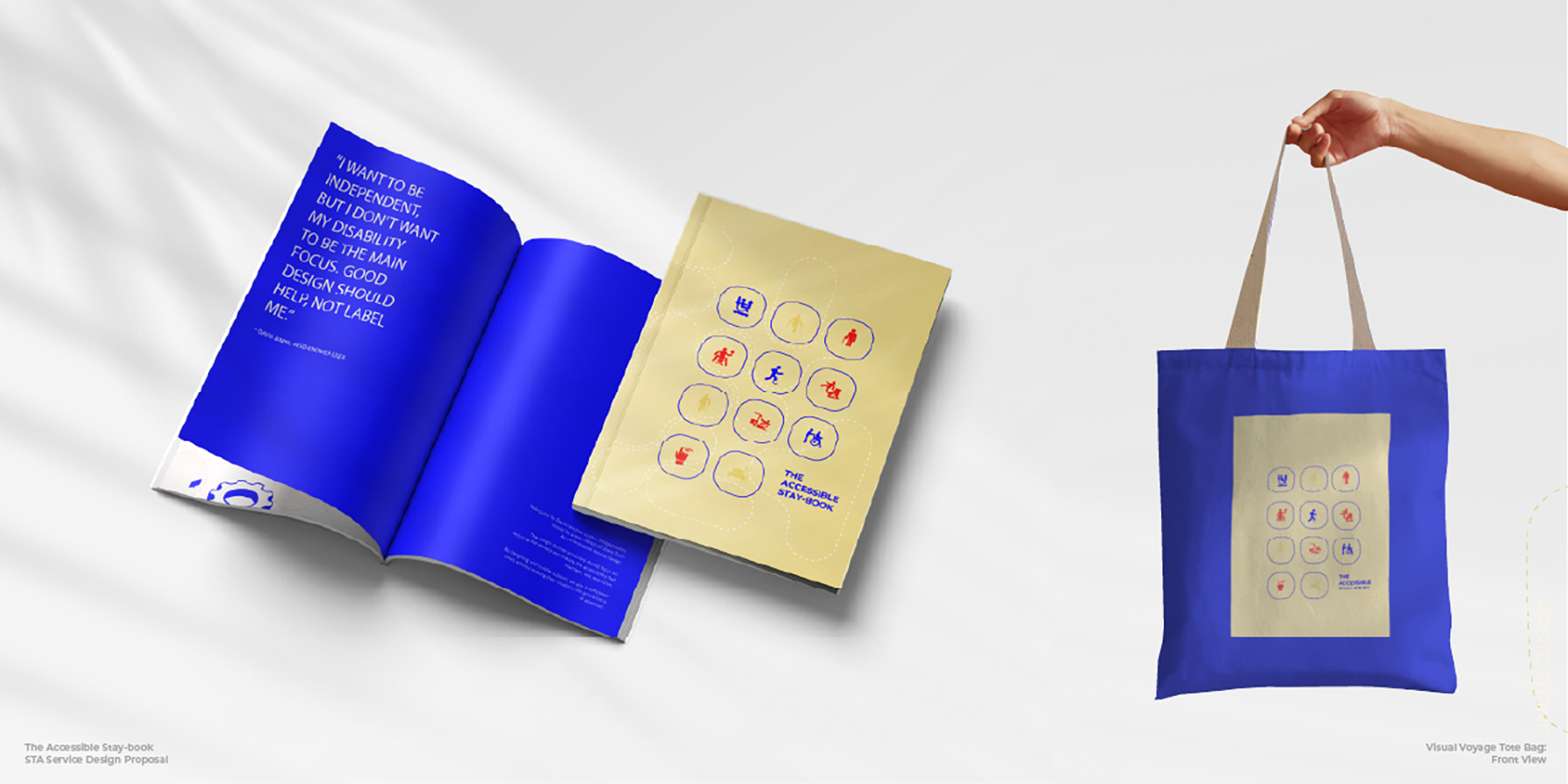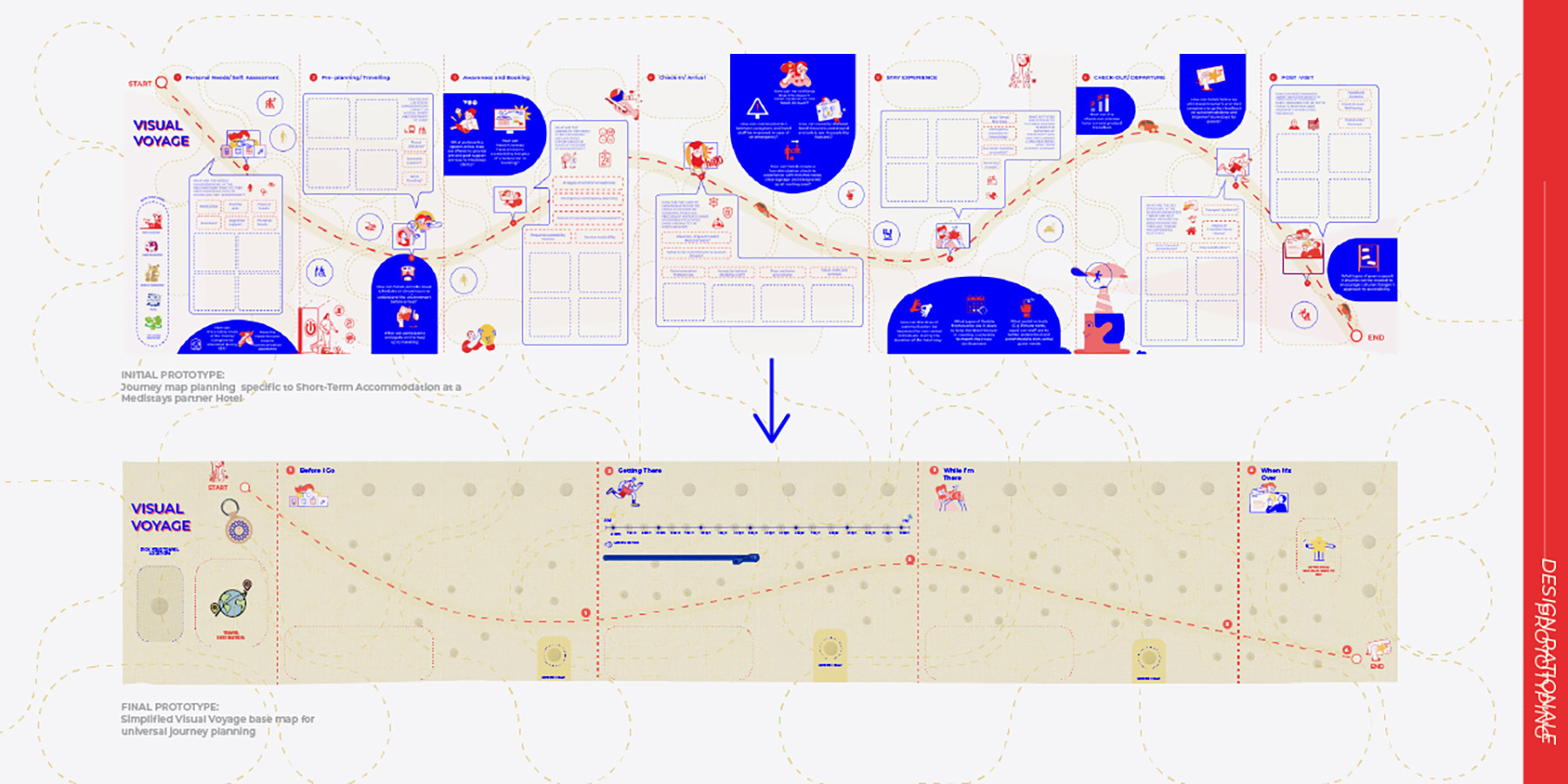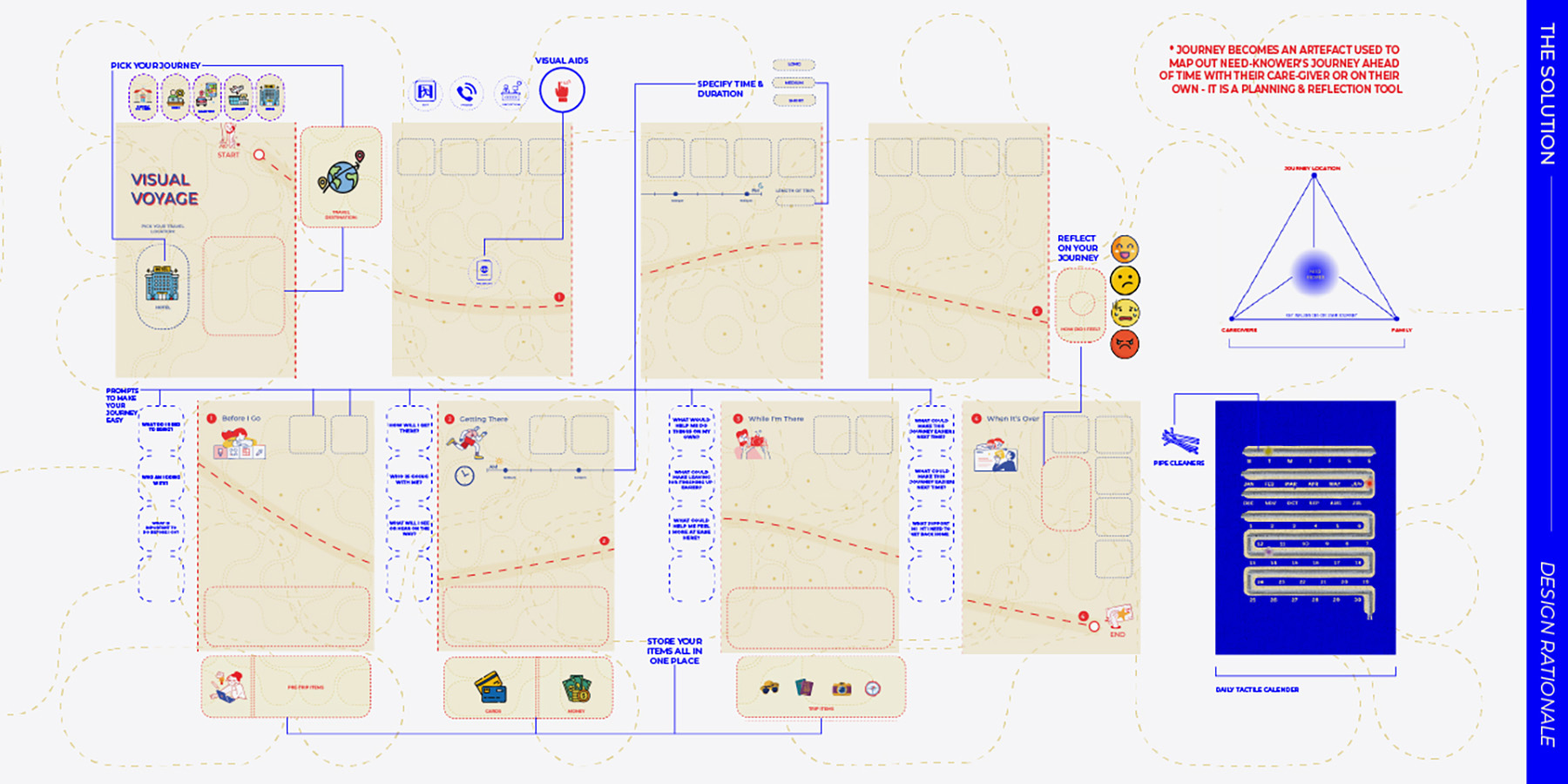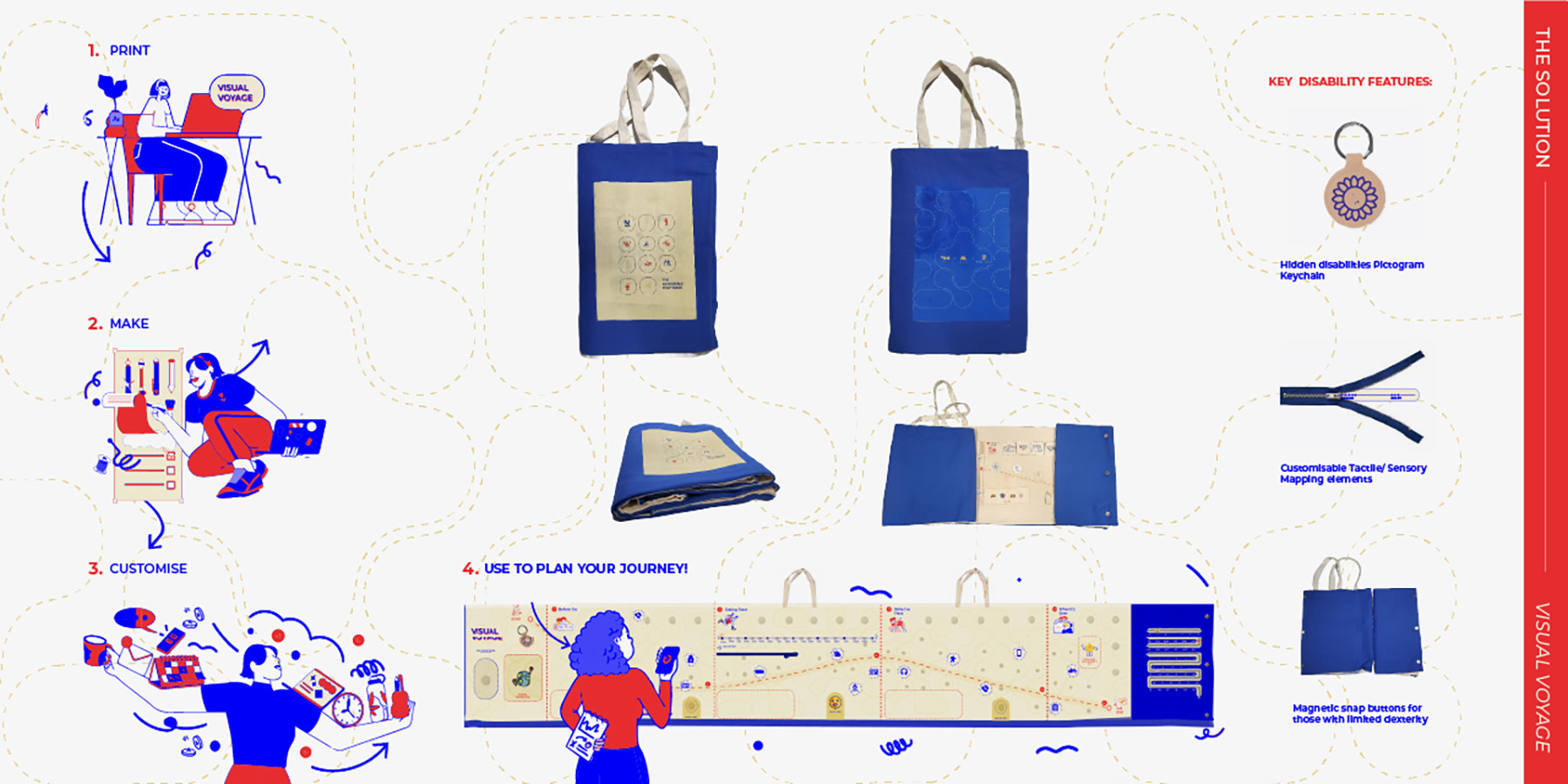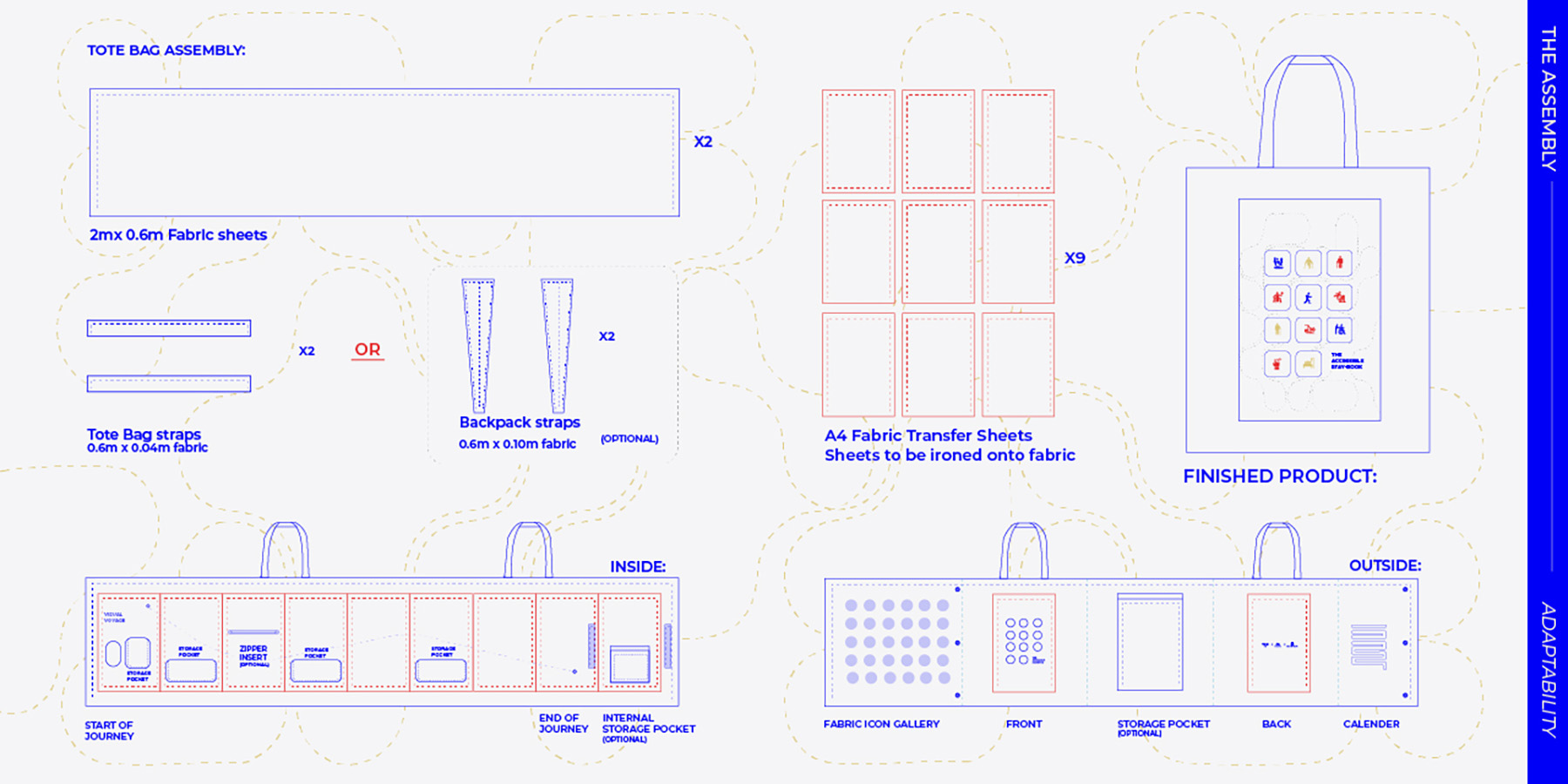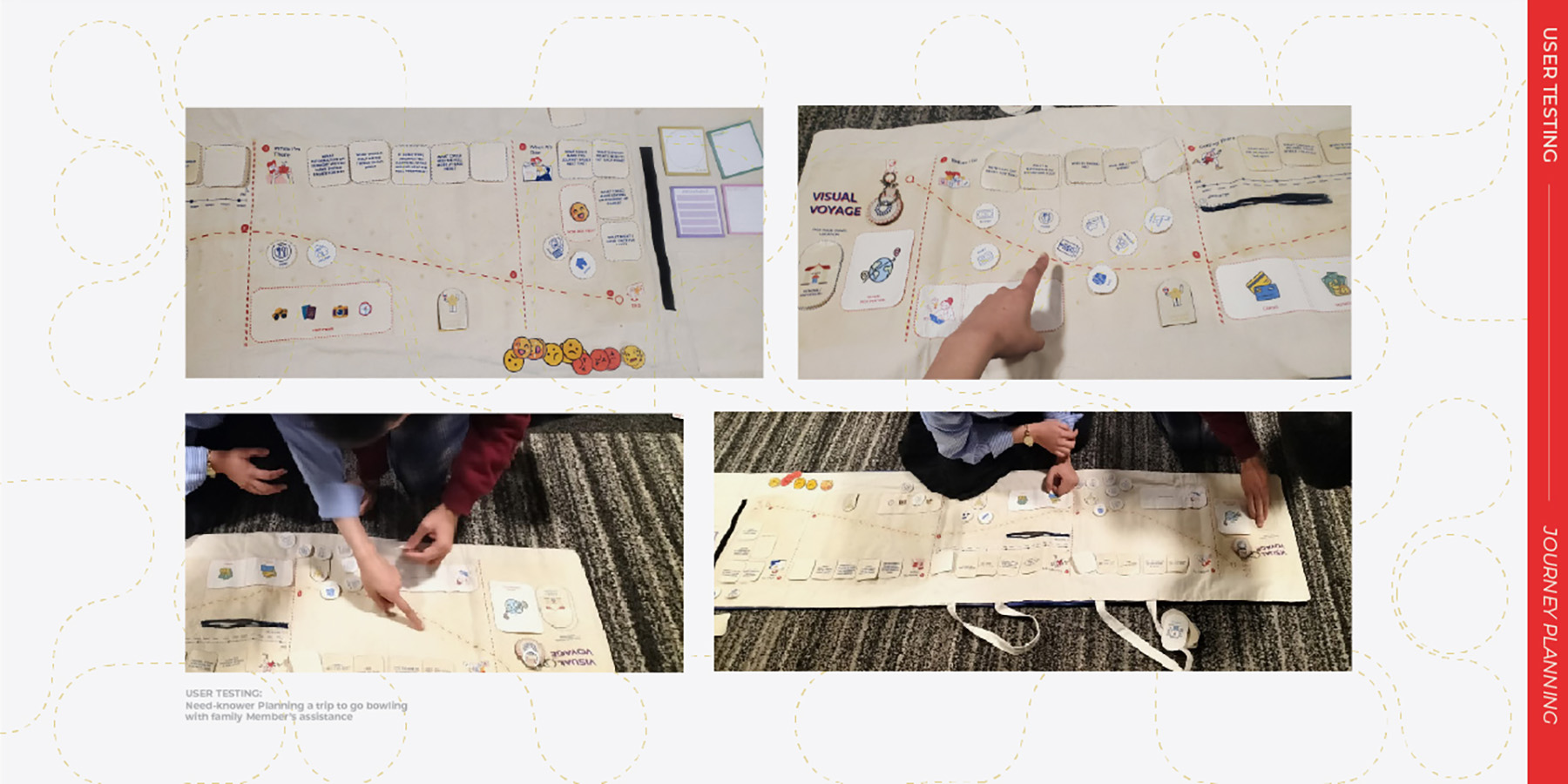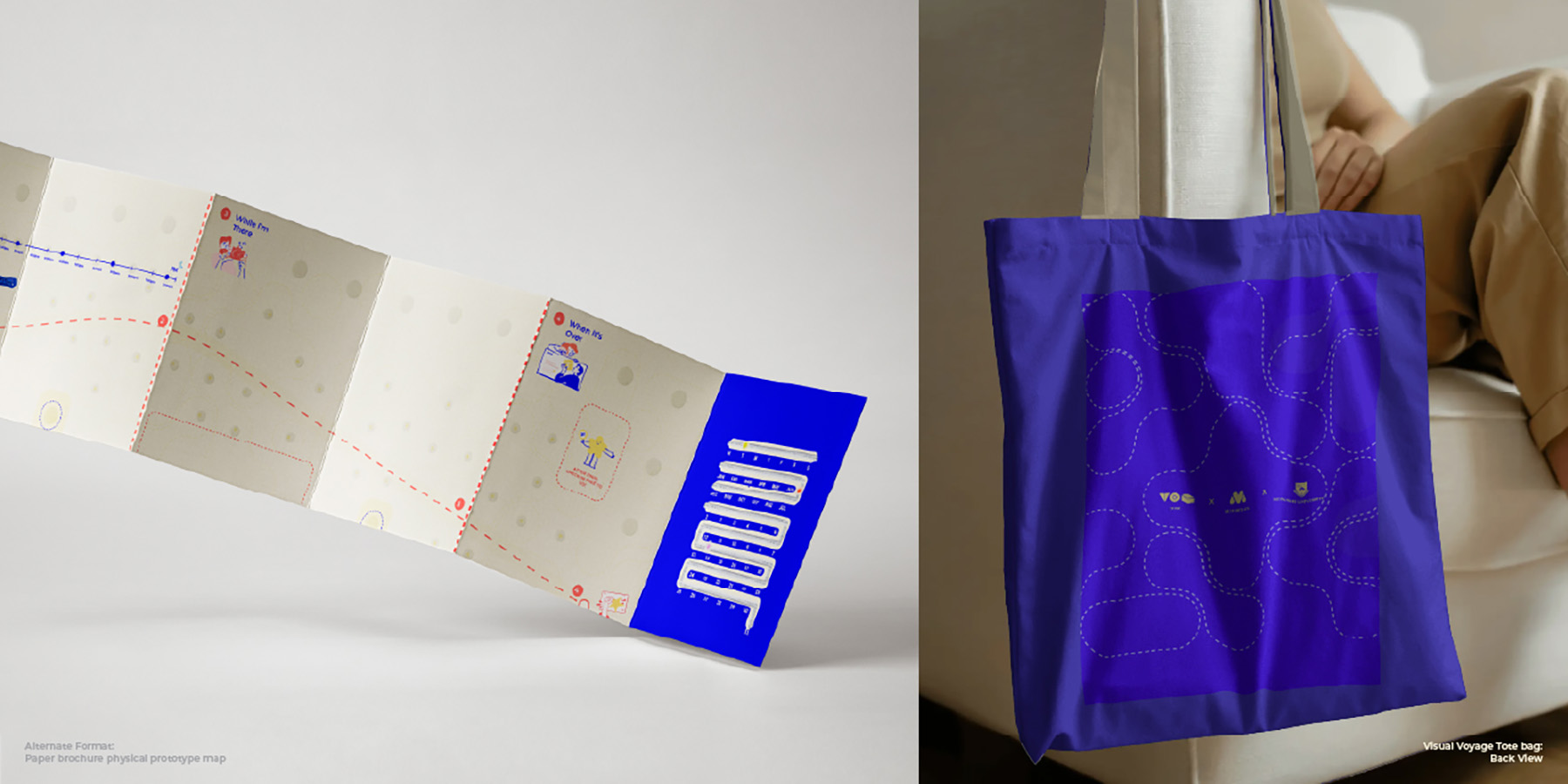The Accessible Stay Book followed a rigorous human-centred design process, grounded in social innovation and service design principles. Beginning with extensive desk research, stakeholder interviews, and a site visit to a MediStays partner hotel, providing firsthand insights into the lived experiences of need knowers accessing STA. Service maps, journey maps, and system blueprints were developed to uncover key friction points across the accommodation journey. An unmet need was identified for neurodivergent and non-verbal travellers experiencing sensory overload, communication challenges, and anxiety in unfamiliar environments. Iterative ideation sessions and co-design workshops with MediStays, TOM (the disability innovation network), and people with lived experience informed the development of a portable, sensory-friendly journey planner that addressed both emotional and logistical travel challenges.
The design was prototyped across multiple iterations, with feedback gathered from MediStays staff, TOM representatives, and a family member of a team member with a hidden disability. This participatory testing resulted in critical refinements, broadening the tool’s applicability beyond STA to general travel and care journeys. The final outcome integrates a visual journey planner with reflective prompts, packaged within a durable, washable fabric tote bag. It allows users to pre-plan accommodation stays, carry essential items, and reflect on their experiences to build confidence and independence over time.
Presented to MediStays with an implementation strategy, the ASB was endorsed for future development and pilot use. The project exceeded expectations, offering a scalable, dignified, and emotionally supportive tool with potential application across disability, healthcare, and community services. Its user-centred approach, practical functionality, and emphasis on dignity and independence position it as a benchmark for inclusive, co-designed travel tools within Victoria and beyond.

